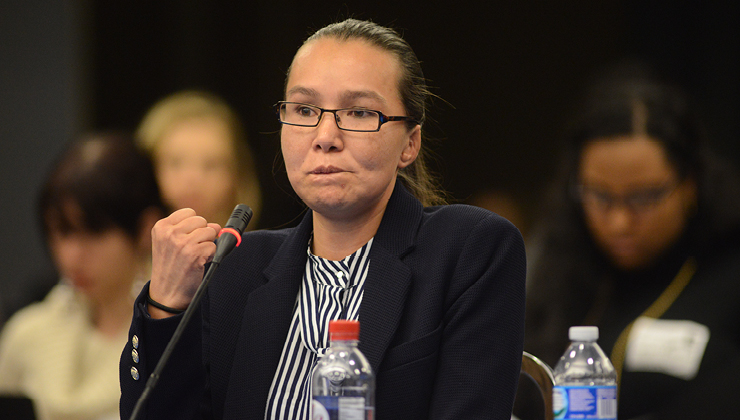Ban Ki-Moon’s apology for the role of the UN in the cholera outbreak in Haiti, reignited the debate on the need for the UN to recognise its legal responsibility for human rights violations. Louise Arimatsu and Christine Chinkin suggest that the UN’s failure to accept legal responsibility for the human rights violations of its mission in Kosovo threatens the credibility and legitimacy of the organisation.
In a statement to the United Nations General Assembly on 1 December 2016, Secretary-General Ban Ki-moon apologised for the role of the UN in the 2010 cholera outbreak in Haiti that has claimed over 9,000 lives and has left a further 780,000 Haitians infected by the disease. The carefully worded apology acknowledged the UN’s failure to take decisive measures to halt the “spread” of the disease in Haiti. However, no mention was made of the more pertinent point – that the most likely source of the epidemic was the UN peacekeeping force deployed there following the earthquake in January 2010. Equally disappointing was the Secretary-General’s reference to the “moral” responsibility to act rather than admitting legal responsibility. The UN’s refusal to concede both factual and legal responsibility for introducing cholera into Haiti has been widely criticised as demonstrated by the 2016 report of the UN’s Special Rapporteur on extreme poverty and human rights. That said, the launch in October of the UN Haiti Cholera response Multi-Partner Trust Fund represents a step in the right direction. The strategy aims not only to enhance efforts at eradicating cholera but importantly to provide “material assistance and support” to the victims and families. It thus goes beyond existing programs and, in so doing, implicitly recognises the need to provide victims of rights violations with some form of compensation.
Haiti is not the only situation where the UN has failed to recognise its factual and legal responsibilities for human rights violations. Many people also continue to be disappointed by the UN’s intransigence in acknowledging that the UN Mission in Kosovo (UNMIK) failed to meet basic human rights standard during the period when it had primary responsibility for “protecting and promoting human rights” in Kosovo having assumed the role of a ‘surrogate state’. The bitter paradox is that, in contrast to Haiti, the UN did take positive steps to establish in Kosovo the Human Rights Advisory Panel (HRAP), which was given the task to examine “alleged human rights violations by or attributable to UNMIK” and to make recommendations based on those findings. However, notwithstanding HRAP’s findings that UNMIK failed to uphold its human rights obligations in over 300 cases, to date, the UN has failed to deliver on any of the Panel’s recommendations.
In July 2016, HRAP released its Final Report to the Secretary-General. During its nine year existence the Panel, comprising three independent experts who considered written complaints once a month during a week-long session in Pristina, carefully examined the facts and issued fully reasoned legal opinions on admissibility and, where admissibility was established, also on the merits in a staggering 500-plus cases. In assessing UNMIK’s conduct, HRAP was authorised to draw on an expansive list of human rights instruments which notably included the Universal Declaration on Human Rights. However, in most cases, the European Convention on Human Rights and the European Court’s case-law constituted the basis of the Panel’s reasoning and opinions. In contrast to its broad material scope, HRAP’s temporal and personal jurisdiction was limited. It could only consider situations occurring between 23 April 2005 and 9 December 2008 (when UNMIK’s justice and policing responsibilities were transferred to the European Union) and did not have jurisdiction over the conduct of KFOR, the NATO-led UN Security Council-authorised peacekeeping force that operated alongside UNMIK.
These limitations aside, the Panel has made substantial contributions toward the progress of human rights jurisprudence, not least in respect of violence against women. In the case of Kostic, UNMIK was found to have failed to exercise due diligence to investigate violence against women as required pursuant to the ICCPR, ECHR and CEDAW. In observing that the arbitrary detention of women constituted a form of violence against women, the systemic failure by UNMIK to conduct gender- sensitive investigations in cases involving detention where women would be at heightened risk of sexual violence, was a violation of the due diligence obligation. Likewise, in S.M., UNMIK was found to have failed to exercise due diligence to investigate and prosecute a case involving rape and gender based violence. In the aftermath of the conflict little attention was paid by UNMIK to gender-based or sexual violence, which may account for the dearth of information about such crimes and thus hampered women’s access to justice.
One of the most damning cases examined by the Panel was that of N.M and Others concerning the placement of Roma, Ashkali and Egyptian families who had been displaced by the conflict in camps located on lead contaminated land. For over a decade, UNMIK did little to relocate the families despite having access to overwhelming scientific and medical evidence establishing the serious risk posed by the lead to the health and well-being of those living in the camps, especially to children and pregnant women. In finding that UNMIK, through its actions and omissions, had violated, inter alia, the right to life, the right to be free from inhuman or degrading treatment, the right to health and the prohibition on discrimination, additionally and disproportionately affecting women, it was hardly surprising that UNMIK’s record was described as “shameful”.
To compound the harm done, none of those whose rights have been infringed by UNMIK have received compensation or a meaningful public apology from the UN, as repeatedly recommended by the Panel. As a quasi-judicial body, HRAP’s opinions are not legally binding and its recommendations are merely advisory in nature. However, the UN’s credibility and legitimacy and hence its effectiveness is severely damaged when it evades responsibility for failing to comply with basic human rights standards. This is even more the case when it creates a mechanism that appears to promise some form of redress and to which communications are made in good faith, but then it does not deliver.
No one doubts that the UN is called upon to perform thankless tasks – in the case of Kosovo the administration of a war torn and still violent society; peacekeepers face some of the most dangerous of situations and are themselves targeted. But it is particularly in such situations that the UN must lead by example. HRAP represents an important experiment in transparency and accountability for the actions of a UN mission in the field and a model that should be established in all UN operations to ensure full compliance with international human rights standards. But if the words of the Secretary-General – that the establishment of HRAP “demonstrates the commitment of the United Nations to human rights” – are to mean anything for the thousands of claimants who have waited for justice for over a decade, a meaningful apology and just compensation are the least that can be delivered.
The views, thoughts and opinions expressed in this blog post are those of the author(s) only, and do not reflect LSE’s or those of the LSE Centre for Women, Peace and Security.
Image credit: Julie Ricard on Unsplash





